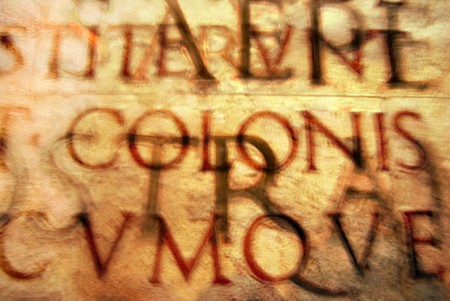Dictionary Use, Master it!
Is your dictionary use limited to finding word definitions only? Learn to use dictionary for spelling corrections, pronunciations, word origins /etymology and more.
There is a heck lot more you can get from your dictionary than mere word meanings.
If you haven’t consulted a dictionary more than just to find word meanings , you may wonder what is so complicated in reading from a dictionary?
Actually a lot!
Dictionary is a storehouse of information. Btw,now you get dictionary in digital format too. You can find each and every vocabulary word related information here, from Word Meanings or definitions/ Spellings / Syllables (syllabication)/ Pronunciation through phonetic symbols/ Part of speech/History (etymology)/Synonyms (words similar in meaning) and antonyms (words opposite in meaning).
If you really want to learn/build/enhance your vocabulary, it’s important that you are well versed with dictionary use.
Never consulted a dictionary in your life? Never mind, do these exercises to get started to find words, quickly in a dictionary.
Meanings or Definitions
The very first job of any dictionary is to give meaning/s of words readers wish to find. But we all know many English words have more than one definition then how do you find meaning of the word as per your requirement?
You will need to look at the way a word is used in a sentence to help you decide the definition applicable to your need. For example, in the following sentence
The villa is located amid gentle pine covered roads.
Supposing you are looking for the meaning of amid and pine, by looking at the words’ positioning in the sentence you can guess amid as something like ‘on’ or ‘near’ , must be a proposition and pine as something roads are covered with, therefore a noun.
Hence, you will find the correct meaning of words for your sentence by looking up ‘noun’ or ‘verb’ definition/meaning, before you decide which definition is meant for your dictionary use.
Parts of Speech
In a dictionary you can find out what part of speech a word is, by looking at the abbreviations in italics, put after the word’s pronunciation. Here are some of the usual parts of speech abbreviations:
n. = noun
adj. = adjective
pro. = pronoun
adv. = adverb
v. = verb
prep. = preposition
v.i. = verb,
intransitive conj. = conjunction
v.t. = verb, transitive
interj. = interjection
Many words can be used as more than one part of speech. For instance, discipline can be used as a noun:
Discipline is an essential ingredient for success. Noun
Students are being disciplined by teachers. Verb
The school exhibits disciplined atmosphere. Adjective
Different dictionaries show parts of speech in different ways. Some provide a separate entry for each part of speech and some give one entry for the word followed by its other meanings/ definitions in various parts of speech.
Do these exercises to find many meanings of a word as different parts of speech.
Pronunciation or Phonetic Symbols
Along with word meanings, proper dictionary use will also show you how a word should be pronounced by showing pronunciation symbols of the entry word. We all know English vocabulary is full of confusion in pronunciations (gh = f as in rough, o = i as in wOmen, ti = sh as in naTIon)
You will find keys to the pronunciation symbols in the front of the dictionary. However, some pocket dictionaries do not include pronunciation keys for the entry word.
There may be differences in the way a dictionary use phonetic symbols to indicate pronunciation, but more often than not, they are same in some ways.
• Vowels are marked to show how they sound.
• Words are divided into syllables (see the next paragraph) to show how they are to be pronounced.
• Accents or the emphasis on certain syllables
For example if you look at the pronunciation of the word ‘burgundy’ in a dictionary, it will show as:
/ber-guhn-di/
So the vowels in the word will be pronounced as bur as in per guhn as in gum and di as in see
Do these exercises to become more familiar with the pronunciation keys for your dictionary use.
As you become better acquainted with your dictionary use, you will be able to read symbols easily and much faster. Eventually, a time will come when you will not need to use dictionary for phonetic symbols except occasionally for unusual situation.
Syllables
A syllable is a single unit of sound. Dictionary divides the word into syllable so that its pronunciation becomes easy. However, words are pronounced in one continuous flow, not as separate syllables.
With accurate dictionary use you can know how many syllables are there in a word and it also informs how to divide the word at the end of a written line. When writing make sure you do not divide a word in the middle of a syllable and you cannot divide one-syllable words.
Follow these steps to determine where to divide a word into syllables:
Divide words at the doubled consonants. (A consonant as you know is any letter of the alphabet except the vowels a, e, i, o, u, and sometimes y).
E.g. the word Dictionary should be divided as dic·tio·nary
A new syllable should begin with a consonant rather than a vowel. For example, be·gin, rather than beg·in. However, no rule is absolute, this one included. If you are in doubt about where you should divide a word, check your dictionary.
Do not divide such groupings as ph, th, ch, or sh as these letters make a single sound. Do these exercises for practicing dictionary use.
Spelling
Dictionary is ‘the’ place to get correct spelling of a word. In here you can find the most accepted spelling/s for any word.
Here are some tips to get more efficient with your dictionary use and help you find the spelling / meaning of the word. First take the first letters of a word e.g.
• If it sounds like it begins with s but is not listed in S section, then look under c (cement, cellar) or ps (psyche, psalm).
• For sound’ f’ if not listed under f, try ph (photo, photostat).
• For sound’ with r and you cannot find it, try wr (wring, wreak).
• For sound’ n but does not, try gn (gnaw, gnash), kn (knight, knock), pn (pneumatic) or en (engage, endorse).
• For sound’ k but it does not, try c (clock, clamp).
• For sound’ j and you cannot find it, try g (gentle, gypsy).
• For sound’ o but does not, try en (en masse, en route).
Synonyms and Antonyms
Synonyms show meaning similar to the entry word. However, there are a few, if any, absolute synonyms within a language.
Synonyms are usually found at the end of a word entry in the dictionary. For example, synonyms for the verb slim could be thin, petite, slender, impoverished (see how the word has a negative and positive connotation)
Synonyms are very useful when you want to emphasize on an idea, but do not want to repeat the same word again and again. There are times when you may find synonyms that communicate your idea more exactly than the word you used originally.
An antonym is an opposite word meaning from the entry word. ‘Open’ is the antonym for Close; Soft is the antonym for Hard.
Most dictionaries do not list antonyms as often as synonyms, if at antonyms are listed after the synonyms.
Do these practice exercises to become better at using dictionary effectively.
Word Origin or Etymology
The etymology or word origin refers to the history of a word and tells us how, where and sometime why the word originated and developed to its present form/ meaning.
You will find this information in a dictionary in a very brief form; either at the beginning or at the end of the word entry.
Look at the word etymology (etymology) itself, derived from Greek tumos = real or true and ology = study/science. It traces a word’s origin as far back as possible and informs how and in what form, a word came into English; and it even traces the pre-English source as far back as possible.
There are many different abbreviations used in different dictionaries to show a word’s origin. Usually, you will find them, in the front of the dictionary. Here are some examples
Checkmate { <O.Fr., eschec mat< Arabic, shah mat }
Modern word checkmate comes from the Old French, eschec mat which is derived from Arabic meaning the king died.
Latinate
L= Latinate
M.L. = Medi-ae-val
Fr. = French
O.Fr.= Old English
M. Fr= Middle French
Gk= Greek (usually entered English via Latin, considered Latinate)
Germanic
O.E.= Old English
M.E.= Middle English
O.N.= Old Norse
Ger= German
(p.) Gmc= ( Protol) Germanic
Goth= Gothic
O.S.= Old Saxon
Other
Sem=Semitic
I.E.=Indo-Eurpoean
Return to English vocabulary and English words
Return to English Dictionary

FREE E-BOOK-Latin and Greek Word Roots
Now download Right-click to download the PDF.Oxford English Dictionary publishes new word updates and revised word meanings, on March, June,September and December every year. For instance, in March 2012, it added:
bit bucket n. An An imaginary trash location, example, "it fell into the bit bucket" means the data was lost.
Click here Contact me for mailing you daily updates on new words
